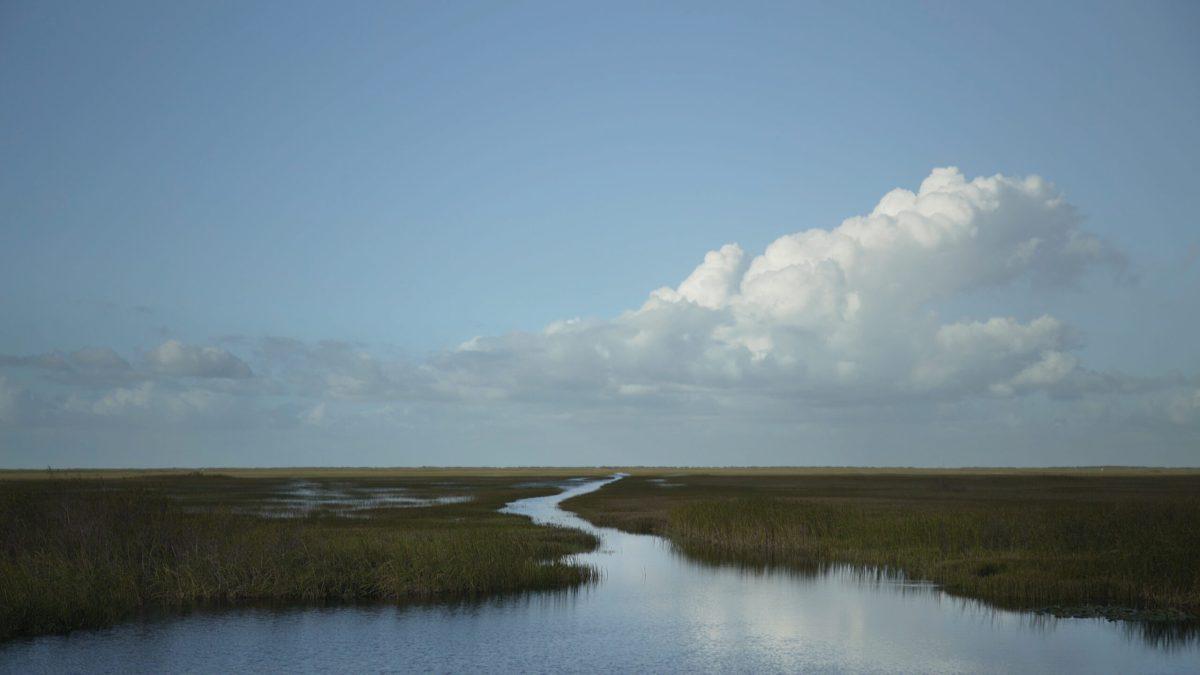
The film was directed by Sasha Wortzel and premiered at True/False Film Fest on Feb. 27
“River of Grass,” directed by Sasha Wortzel, premiered at True/False Film Fest on Feb. 27. The film highlights the Florida Everglades and the people who fight to protect it from environmental destruction.
According to Wortzel, the idea for the film came to her in a dream. She already intended to focus her film on the book “The Everglades: River of Grass” by conservationist Marjory Stoneman Douglas, but in a Q&A following the screening, Wortzel said that Douglas told her in a dream that the activist still had more to say.
The film did an excellent job not only showing the beauty and necessity of protecting the Everglades as man-made issues encroach on the land, but also telling the stories of those who fight the hardest to save it.
There were certainly sad moments in the film as the realities of the harm to natural ecosystems set in, but there were also moments when the whole audience laughed — specifically due to Douglas’ straightforward and sarcastic humor in her interviews. The documentary truly connected with the audience in its reflective nature sprinkled with lighter moments.
The Everglades has been victim to environmental harm from man-made intrusions for many years. Wortzel used footage and interviews of people seeing those effects first hand to get this point across.
One woman spoke about the sugar cane farms and the pesticides they use. She explained that when the sugar cane is burnt, people like her in the surrounding areas breathe in harmful chemicals.
A mother-daughter duo spoke up about the pythons and their effect on the Everglades environment. This invasive snake species were only brought in through the pet industry and are now killing the native wildlife.
In an old interview, Douglas discussed how the Everglades Jetport was supposed to be built in what is now a conservation site in southern Florida. However, the protests organized by Douglas helped stop the airport from being built and harming the surrounding Everglades.
This story couldn’t have been told without the voices of activists for the Everglades and people affected by the issues. The most prominent voice in the whole film was Wortzel’s, whose connection and love for the area she grew up in was clear in every word she spoke.
Even though Douglas passed away at 108 years old in 1998, her voice was still a guidepoint in the film. Wortzel used archival interviews with Douglas to insert her voice into the narrative, which helps show just how important Douglas was in the conservation effort of the Everglades.
Betty Osceola and others of the Miccosukee Tribe were important to the entirety of the film, as they showed a great appreciation and love for the Everglades and nature. Osceola led prayer walks through the area, and she told walk participants to notice and admire the water they see along the way.
The love and passion that the director and crew have for the Everglades is present in every second of the film. Every shot, interview and voiceover are thoughtful. They work together to create an educational and emotional documentary. It leaves the audience with a more expansive knowledge of the effects man can have on nature and, by extension, other people. This lesson can be applied not only to the Everglades, but to natural environments all over.
You can keep up with The Maneater’s 2025 True/False Film Fest coverage here.
Edited by Alyssa Royston | [email protected]
Copy edited by Hannah Taylor | [email protected]
Edited by Emily Skidmore | [email protected]